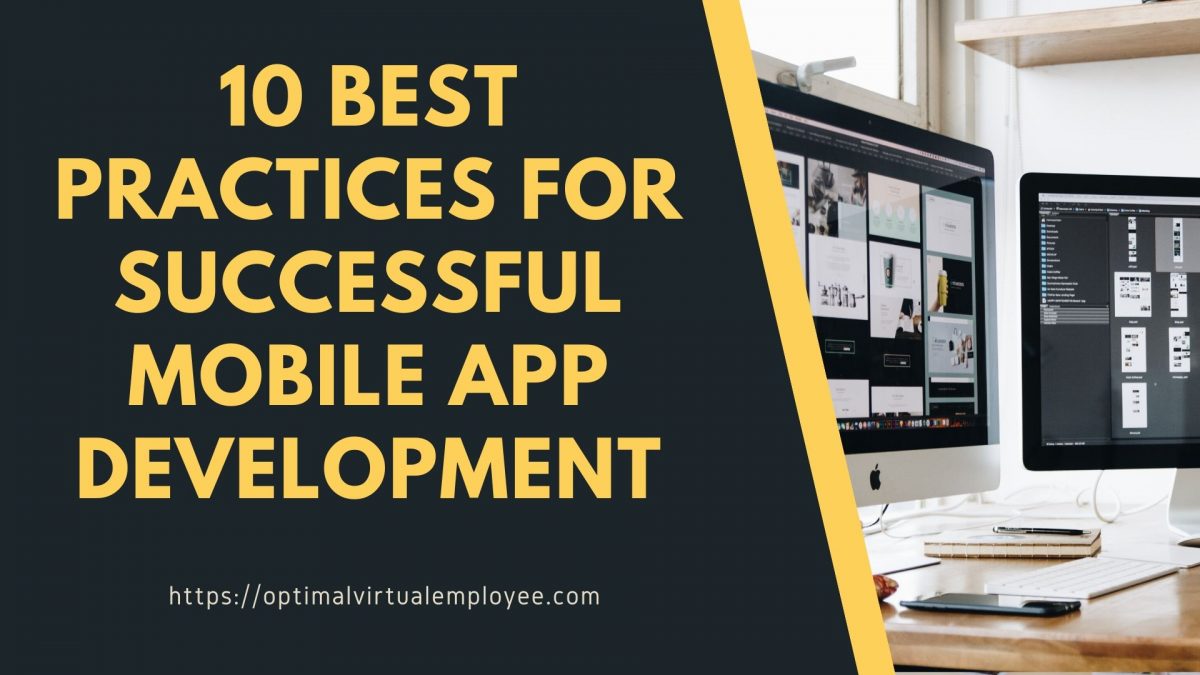When a client hires an app developer, they expect a robust mobile app delivered on time. There are a few things you should keep in mind before building a mobile app for yourself or a client. These ten practices would not only help you deliver a successful mobile app but will also ensure it is delivered on time. Let us go through these points one at a time to get a better understanding.
10 Best Practices for A Successful App Development
Research Is Important
The first thing to do is research and see who is your target audience, why would they download your mobile app and want benefit would they get by doing this. If the app you are going to develop does not have a market audience, then investing time or money into it would not be a good idea. If you are hired by a client to build a mobile app, you would not need to do this research as they would have most likely already done this before approaching you. If you are someone who is looking to hire an app developer, you should look into researching
Type of Development
The next question is, do you want a native, hybrid, or web-based mobile app. This would depend on the kind of mobile app you need, for example, if you are building a mobile game, you would need high performance from the app. In this case, a native app might be the best option for you; the downside to this is that a native app would only work on one platform. If you want your app to be available on other platforms, you would need to build it from starch. It would increase the development time and cost of development.
Choose the Correct Platform for Mobile App development
When building a native mobile app, you need to decide which platform to use; Android or iOS. Ideally, you should build the app for both platforms as this increases its reach. However, is you are only building the app for one platform, you need to choose the one that best fits your needs. You would need to refer back to the research you did about your audience. You would need to figure out what percentage of your audience is using Android and what percentage is using iOS, based on this you can choose the platform.
Design Matters
As a developer, you need to focus on the development of the mobile app; the designer is the one who needs to design it. However, both the designer and software developer need to keep each other in mind while working on the mobile app. The developer has to understand how the design components would work and develop according to that.
User Experience
It is one of the most important things in mobile app development. The designer and the developer need to focus on the user experience. The user must enjoy using the mobile app; this includes the design and the functionality of the app. As a developer, you would need to make sure that every function in the mobile app is user-friendly.
Security Is A Big Concern
Nowadays, cybersecurity I a big concern, you need to keep this in mind from the word go. Building your app with all security measures in place is the right thing to do. Google Play and the Apple app store require your app to be at a certain security level for them to be displayed there. Apart from this, keeping the user’s data safe is of paramount importance.
Ask for Help, When Required
While building a mobile app, you might face some development issues, don’t waste your time trying to get them done alone, take help when required. Speak to your team members; they may have faced similar problems in the past and might have a solution for you. Remember that the job is to create a fantastic app. The client would not care if you asked someone for help; all they care about is getting their app ready on time.
Feedback Is Great
Getting feedback during every stage of the mobile development process is a good idea. When you are working on a project for a while, it gets though to view it with a neutral perspective. You need to take outside feedback to make sure that everything is still on track. It is true whether you are hired by a client to build a mobile app or are building one for yourself.
Updates Will Happen
Always plan for updates in advance, as no matter how much time you put into carefully planning every stage of the mobile app development. There will be things that you would want to update after the app is live. There may be a security patch that you want to add, or a feature of the app needs to be updated. By making updating the app easy, you would save a lot of time and money in the long run.
Test Everything Regularly
Testing the mobile app at every stage of the development is highly necessary. This way, you can iron out any issues you come across at each stage and not leave everything for the end. Whether you are testing the app yourself or you have a team of testers who do that for you, testing is crucial. Testing and getting feedback go hand in hand in developing a robust, user-friendly app.
Conclusion
Building a successful mobile app is not an easy task. Whether you are an app developer or someone who is looking to hire an app developer, these ten best practices can help build a robust mobile app. By following these practices, you avoid development issues and can deliver the app on time.









